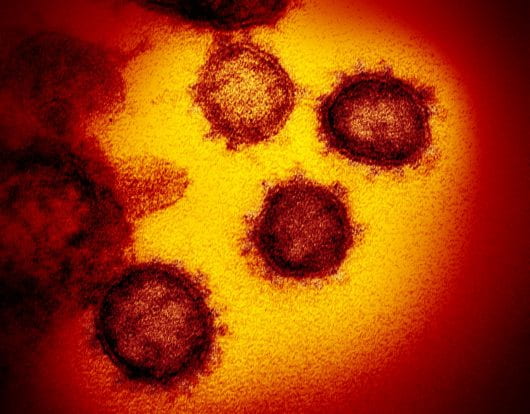Fear of a coronavirus outbreak in Columbus has led to events at the Arnold Sports Festival being cancelled and is raising questions about whether Ohio State might be forced to cancel its own events and classes for similar circumstances.
As the Columbus community prepares for a potential outbreak, Ohio State will continue to monitor the situation and send updates as university, local and federal guidelines change, Ben Johnson, university spokesperson, said in an email.
The virus, now officially named COVID-19 by the World Health Organization, caused government officials to prohibit general spectators from attending the annual Arnold Sports Festival with the exception of the Arnold Classic World Bodybuilding Championship finals, Gov. Mike DeWine announced in a press release on Thursday.
“The mayor, our public health officials and I are gravely concerned that the event as organized poses a unique and unacceptable risk for the spread of COVID-19 for guests and the community,” DeWine said. “These concerns include the attendance of individuals from more than 80 countries and from other parts of the United States affected by COVID-19.”
DeWine also said officials are concerned about the general admission feature of the event, which allows “spectators to attend dozens of events and travel freely” from the Greater Columbus Convention Center, the Ohio Expo Center and the Hyatt Regency Columbus.
The decision was originally agreed upon by the Arnold Classic, the Columbus Department of Health and the Ohio Department of Health, Luke Jacobs, population health division administrator for the Columbus Department of Public Health, said.
A letter sent from Gov. Arnold Schwarzenegger to DeWine and Columbus Mayor Andrew Ginther Wednesday says the people involved with the Arnold felt it was important to agree with the decision initially, but after more research, began to question why other events with tens of thousands of attendees were allowed to continue.
“There is no explanation to allow all these other events with 20,000 fans to continue while not allowing us to sell tickets to a few thousands sports fans to watch our various different sports,” Schwarzenegger wrote in the letter. “We share your concern for public health and that is why we immediately agreed to cancel our expo.”
Schwarzenegger said the festival stopped athletes from heavily impacted areas from competing, but the majority of the athletes are from Ohio and the unimpaired surrounding area and they should be able to have fans cheer for them the same way Ohio sports teams that have been allowed to continue despite the virus do.
As of March 5, there are 97,840 cases of the virus with 3,347 deaths worldwide, according to Johns Hopkins University. There have been 176 cases and 11 deaths in the United States as of March 5. Nine of the deaths are from King County Washington.
There have been no reported cases in Ohio as of March 4, according to the Centers for Disease Control and Prevention.
As other Columbus events might make similar decisions, Ohio State continues to monitor the situation and prepare for potential quarantine.
An email sent to all class instructors in the School of Communication Feb. 26 discussed preparations for classes in the event the virus spreads to Ohio. The email said professors should familiarize themselves with CarmenZoom, a built-in video conferencing tool, in case the virus spreads and causes classes to be canceled.
“At this time there is no need to change any routine campus activities or behaviors due to COVID-19,” Johnson said.
The Columbus Department of Public Health is currently communicating guidelines received from the CDC with the university, Myles Bell, public relations specialist for the Columbus Department of Public Health, said.
The Department of Public Health would work in partnership with the university to make decisions about canceling events, Jacobs said.
“We would work in close concert with any of our partners as it pertains to the cancellation of classes, any kind of cancellations of events that go on in our community. There is guidance that we have from both the CDC and the Ohio Department of Health about those decision-making processes and it would be a collaborative effort,” Jacobs said. “Ultimately, we would give recommendations to the schools about how to handle that, but ultimately the decision is rested upon the schools to make those kind of decisions.”
Jacobs said the department is expecting community transmission, but decisions about event cancellations are speculative and case-by-case.
Columbus is not currently in a declared state of emergency or public health emergency, but if one occurred, the department has the authority to limit or restrict movement, Jacobs said. Jacobs said if a public health emergency is declared, the health commissioner is granted broad authority to make decisions to restrict movement and declare for social distancing and canceling events.
WHO defines a public health emergency as “an occurrence or imminent threat of an illness or health condition, caused by bio terrorism, epidemic or pandemic disease, or (a) novel and highly fatal infectious agent or biological toxin, that poses a substantial risk of a significant number of human facilities or incidents or permanent or long-term disability,” according to its website.
According to the WHO website, a declaration of a state of public health emergency allows the governor to suspend state regulations and change the functions of state agencies.
“That is a very drastic measure that we would not do outside of having some agreed upon strategy with whatever system we’re working with,” Jacobs said.
A universitywide email sent Tuesday said the best way to prevent COVID-19, or any virus, is to practice routine hygiene etiquette, avoid others if you are sick and avoid close contact with those who are sick.



